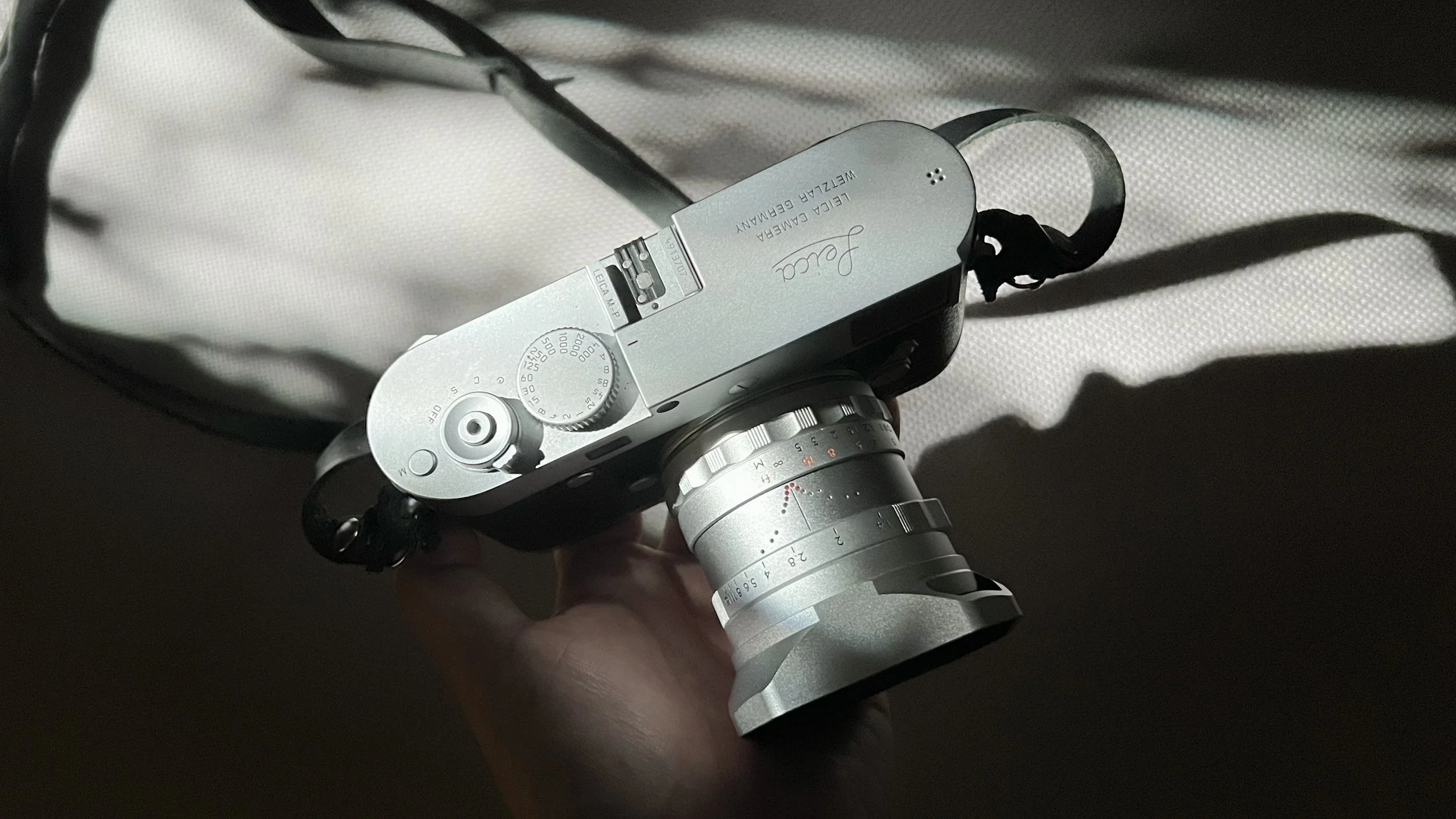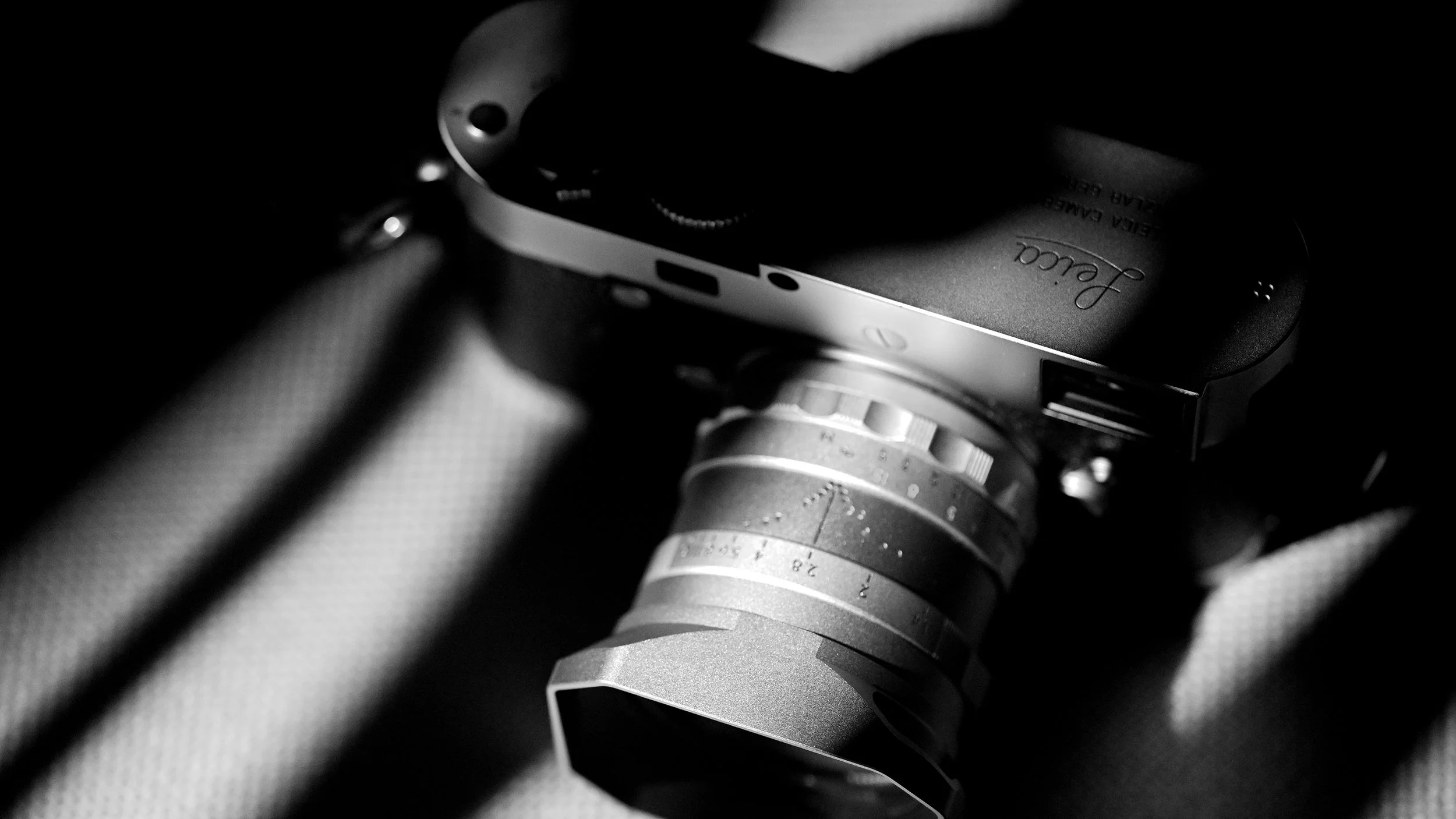I Used to Hate Leica
The idea that Leica owners take more photos of their cameras than with their cameras seems to be a widely adopted one. Along with it seems to be an influx of negativity towards Leica the brand in addition to people who shoot on Leica cameras. I believe it may be both the cause and result that people are often unimpressed with the photos they see taken on Leica cameras, and/or they are sickened by people who seem unnecessarily enamoured by photos taken on Leica cameras, or perhaps more often, obsessed with the cameras themselves.
Leica owners seem to be painted as the vegans of the camera world, announcing their camera of choice wherever they go, or the Apple user equivalent, parading their cameras as depictions of status.
Six to seven years ago, I would have agreed with this wholeheartedly. Essentially, I was a Leica hater. I did not understand who in their right mind would spend so much on a camera that offered half, if that, the features found on cheaper, tech-forward cameras. Why make things harder for yourself when the camera is just a tool? Can’t you take the same photos, if not better photos, on a more budget friendly camera? Is it just the allure of the brand? Are you compensating for your lack of skills? These jumped to the frontline of my thoughts every time I came across anything related to Leica.
When I look back at myself, I would say these questions are built upon a few assumptions regarding cameras that do not apply to myself today:
First, I was a full-time freelancer so it was important to me to find a camera that made photographing easier. I sought fantastic value options—esesntially the cheapest camera that could still yield high-end results. Why spend more than needed?
Second, I was under the impression that commercial photography for global brands, or working with celebrities was the epitome of photographic talent. Talent was synonymous with recognition and success, a common pitfall we see in multiple industries and sectors.
A third assumption, that the better you are as a photographer, the more expensive and state-of-the-art camera you need in order to deliver.
If we assume the third to be true, we introduce a fourth assumption: only the best of the best deserve to use the most expensive gear, as their work calls for it.
Given today’s attitudes towards gear and how relatively meaningless it is, I don’t think it’s all too difficult to recognize how these assumptions can fall short (though I may delve into them in the future), but the main takeaway is that when I was operating with them in mind, I could not accept Leica as a rational option. By extension, I associated Leica owners as irrational, vain, and purchasing cameras they did not deserve.
If that phase could be described as “Leica hater,” I soon became a hopeless Leica fanboy. I don’t recall what caused this shift, but I began to see photos taken on Leica cameras that I thought were amazing. I also began to fall victim to the timeless aesthetic of the cameras. I was drawn to the organic feel of the photos I was seeing, and may have begun to associate Leica cameras with artistry or artisanal qualities. Most likely, it was the projection of my own desires and inability to separate the tool from the talent. As a result, in order to develop in these areas, I thought picking up a Leica would help me.
I ended up buying a used Leica M8. Unfortunately (or perhaps ironically?), the M8’s rangefinder was not properly calibrated, so I quickly became frustrated by the manual focus experience. I was also turned off by the dynamic range and lowlight capabilities. In hindsight, my frustration stemmed from the fact that I did not have the patience to actually pour time into learning the craft of photography. What is more embarrassing is that the only reason I did not sell it immediately was my own vanity. The camera was beautiful. I loved how it made me feel when I was shooting with it. The shutter sound was otherworldly. The colour science was breathtaking. But it did not make me a better photographer.
At this point in time, I was far more videographer than photographer, so I ended up selling the camera to fund more video-centric equipment, but I continued to be enticed by Leica. The older I was getting, however, the more it felt that Leica was simply out of my price range and I felt resigned that I would never get to fully experience the system. This bred subconsciously feelings of bitterness towards those that seemed to be enjoying all that Leica had to offer.
If we fast forward to now, I’ve grown out of those initial assumptions, and the Leica pedestal has receded into reserved appreciation. The most prominent change is that now even if I have to prioritize a freelance and hybrid shooting-friendly camera, I can do so without demonizing other people’s gear choices. Of course, it makes me sigh when I observe people flocking to Fujifilm X100Vs because of Tiktok, the Ricoh GR following suit, the trend towards point-and-shoot direct flash, and the ever-present diatribe against Leica owners, but I don’t truly, truly care. I also see that some people do obsess over taking photos of their cameras instead of using them, and that some people believe owning a Leica will make them better photographers, but again, it all does not really matter to me because I just want to enjoy the process of photography. I simply want to become better at it.
That being said, I do love what I perceive Leica cameras to be. For me, their rangefinders in particular, offer an experience I haven’t found yet with modern mirrorless cameras. There does seem to be a timeless quality and philosophy towards their cameras (albeit with some aggressive pricing approaches), as well as something to be said about the craftsmanship that is apparent in their bodies. More than ever, I appreciate simplicity when it comes to cameras—the latest tech overwhelms me to be quite honest—and I like how the cameras urge me to face the reality that my shit photos are because I was a shit photographer at the moment I pressed the shutter button. It is encouraging in a way, as it simply means I can work towards improving my skills and consistency overall. And objectively looking at my current camera, the Leica MP-240, the lowlight, dynamic range, and other performance factors, are acceptable. I just need to be more aware of whatever limitations there are, and still be able to create fantastic images.
Finally, the camera doesn’t validate me nor does it affect my self-image in any way. My appreciation for the camera begins and stops at the tool in front of me. I love the way it feels in hand, admittedly the way it looks, the ease with which I bring it around with me everywhere, and the image it is capable of producing. Its features and lack thereof are perfectly aligned with the kinds of images I want to capture, which I am finding is the single most crucial element when choosing the right camera for you.
When I meet other photographers who use Leica, of course I’m going to nerd out about the cameras and lenses with them, but I’m finding that I also do that with any other photographer using any other gear, with just as much joy.
So if you find yourself in any of these earlier phases of hating on a brand and its users, Leica, Sony, Fuji, or whatever, I highly recommend revisiting what photography overall means to you. How do you define photography? What about it appeals to you? Do you hope to achieve anything with it? Is it a vehicle? Is it meant to be a personal outlet? What are the answers to those questions?
The more we answer questions like that the more we obviously understand what we seek in a camera and what we really care about when it comes to this medium. Once we achieve that understanding, the actions and opinions of others become largely irrelevant. Of course there are days when it feels like this medium, this space, is so watered down and commercialized, stripped away of all the layers of potential nuance, but again, that has no effect on our desire to pursue photography individually, does it?
How the general population perceives and interacts with photography ultimately has no impact on how I wish to enjoy photography, especially if my pursuit is independent of any external factors. If I'm not seeking fame or most conventional definitions of success through photography, then the opinions of others arguably holds very little value.
Anyways, those are some of my thoughts. Curious to see where everyone else is at on this.
-Joon




